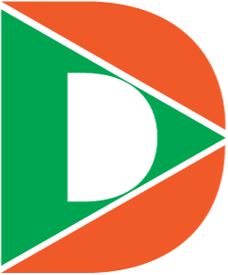Understanding the Basics of Bike Repairs: A Beginner-Friendly Handbook
As much as the thrill of riding motorbikes and the feeling of wind brushing through your hair are incomparable, owning a bike comes with responsibilities. Whether you’re an enthusiast who loves to cruise around on weekends, or a daily commuter, it’s essential for every rider to understand the basics of motorcycle repairs. But why?
Every two-wheeler intrigues us with its speed, performance, and style, but isn’t there a secret echo whispering, “What if it breaks down mid-ride?” or “What if it doesn’t start one fine morning?” And wouldn’t it be nice if you could handle at least the basic level of maintenance all by yourself?
Well, this comprehensive guide is going to serve as your beginner-friendly handbook to ease into the world of motorbike repairs. We’re going to break down the bits and bolts with step-by-step instructions, pros and cons, and a dash of practical tips that will make your affair with self-repair an enjoyable hobby.
Why Should You Understand Basic Bike Repairs?
The first question that pops up in the mind is: Why should you bother understanding bike repairs? Isn’t that what the mechanic is for?
Yes, professional mechanics are skilled and trained to take care of complex problems, but they may not always be around when your bike decides to give up. Knowing basic repairs does not only make you self-reliant, but it also could save those extra bucks you otherwise spend on avoidable mechanic visits.
Further, getting hands-on with your machine allows you to understand it better. You will be more in tune with the regular sounds and behavior of your bike, making you faster at detecting any irregularities.
What Are the Basics You Should Know?
When we talk about basics, we mean the repairs and maintenance tasks that don’t ask for specialised tools or advanced mechanic skills.
The first basic is knowing how to change a flat tyre- a common quandary for most bike owners. Understanding how to properly change oil and filters, adjusting chains, replacing brake pads, and bulb and fuse replacement, are certain simple yet critical tasks you should equip yourself with.
Learning the Art of Troubleshooting
While you ride your bike, paying heed to its behavior can help you recognise potential issues before they escalate. For instance, if you observe your bike dragging while riding or it’s taking too much gas, it’s high time to clean the carburettor.
Troubleshooting doesn’t necessarily mean you have to fix everything that goes wrong. It’s about knowing when and what kind of professional help you might need.
Pros and Cons of Self-Repair
Like everything else, self-repair has pros and cons. On the plus side, you save on mechanic expenses, gain hands-on experience, and derive satisfaction from being self-reliable.
However, the other side of the coin shows that without proper knowledge, you might end-up causing more damage. Also, if you seek enjoyment purely from riding, the repair job might drain your enthusiasm.
Necessary Tools for Basic Repairs
The right tools in your garage can make motorcycle repairs less daunting. Basic tools include a set of wrenches, pliers, tyre pressure gauge, screwdrivers, and a flashlight. A comprehensive tool kit will make your job easier.
Learning Through Manuals, Videos, and Workshops
Whether you own a Harley or a Honda, their official website provides detailed manuals. YouTube is also an enormous free resource where professionals share easy-to-follow tutorials.
For more practical learning, consider attending basic repair workshops. These sessions could provide you with hands-on experience under the guidance of seasoned experts.
Conclusion:
The essence of this guide is not to transform you into a fully-fledged mechanic but to empower you with the basic know-how of bike repairs. By understanding the basics of motorbike repairs, you can minimize potential damage, save money, and enjoy the rewarding experience of self-reliance.
Understanding mechanics does not imply that you must do everything yourself. The intent is to help you become knowledgeable enough to understand the difference between minor troubles and complex issues that warrant professional intervention. So don’t let a broken bike slow you down; equip yourself with the knowledge and skills to fix it yourself. Start your repair journey today and ride with confidence!

As a DIGITALTECHSIDE author, the majority of our articles have been focused on technology, blogging, business, lifestyle, social media, web design and development, e-commerce, money, health, education, entertainment, SEO, travel, and sports.
Contact us at digitaltechside@gmail.com if you have questions of anything.




